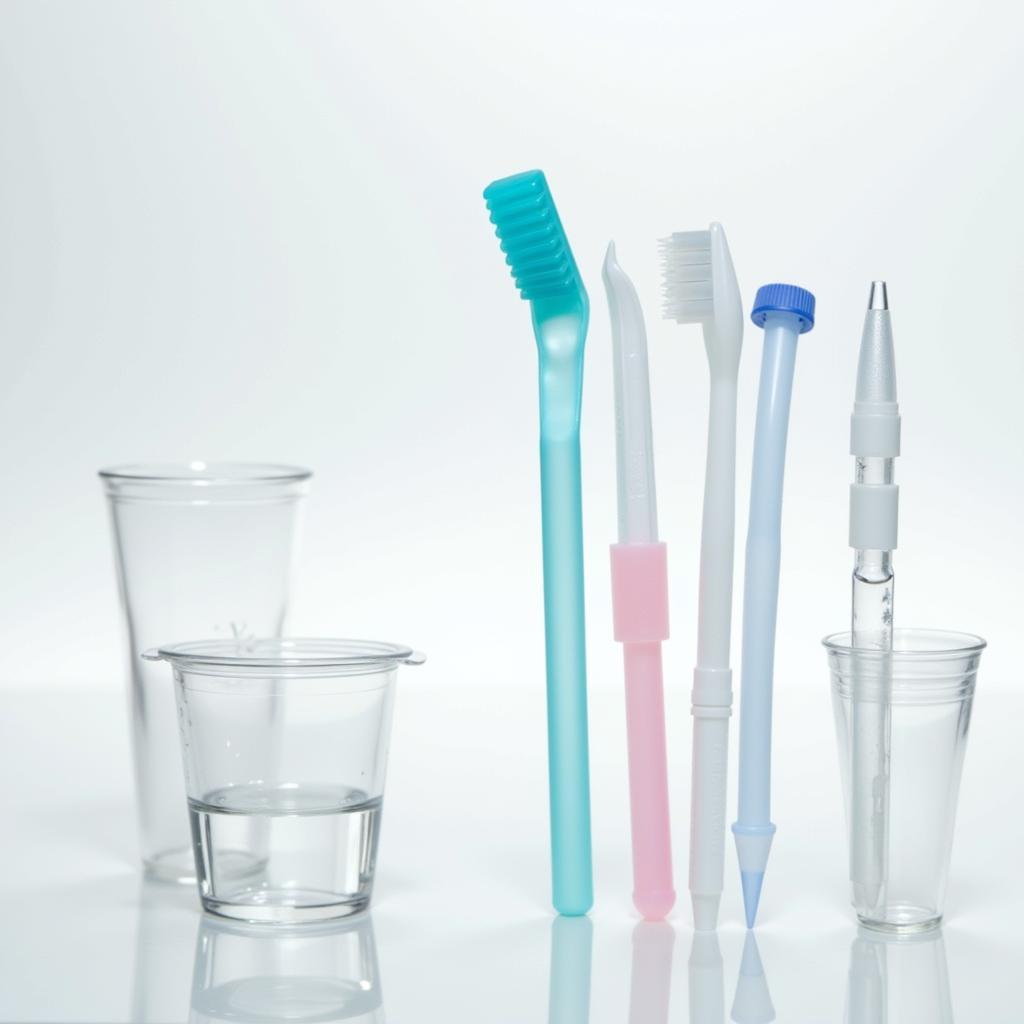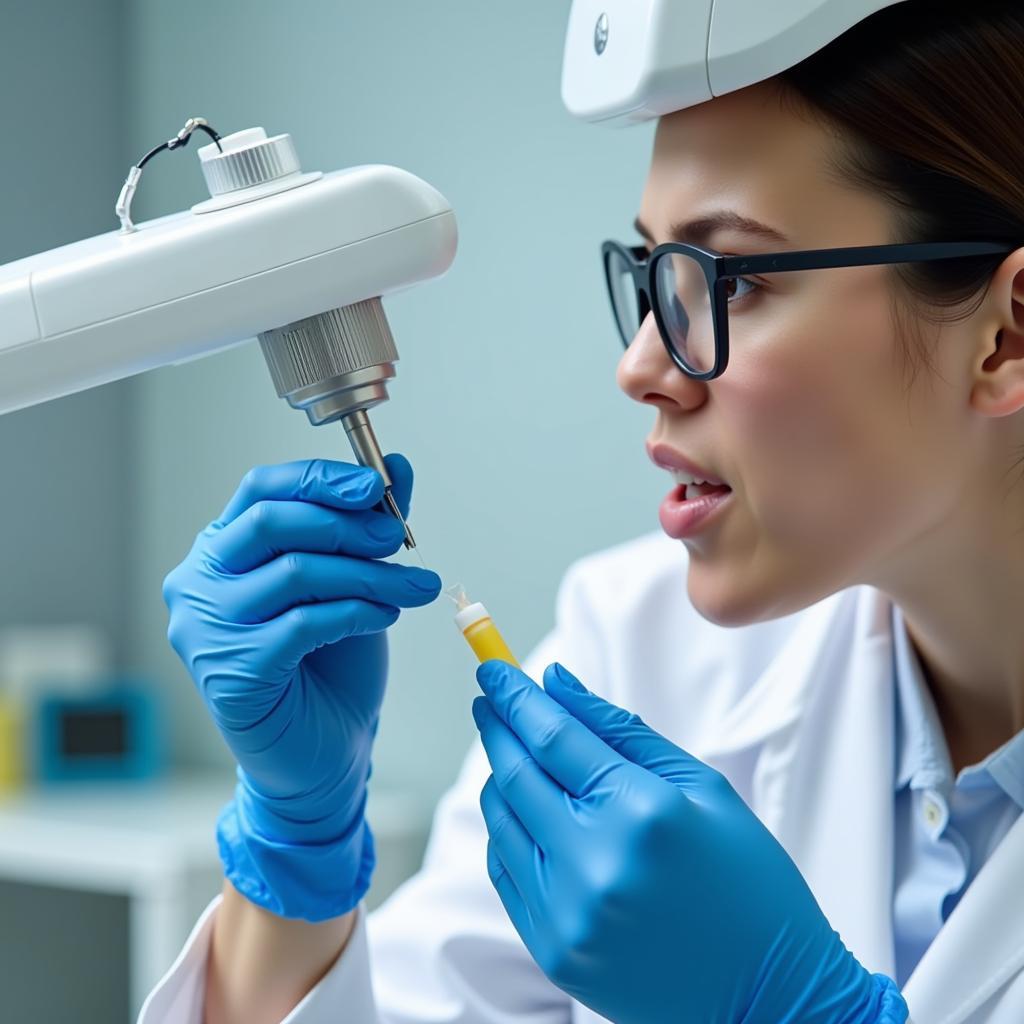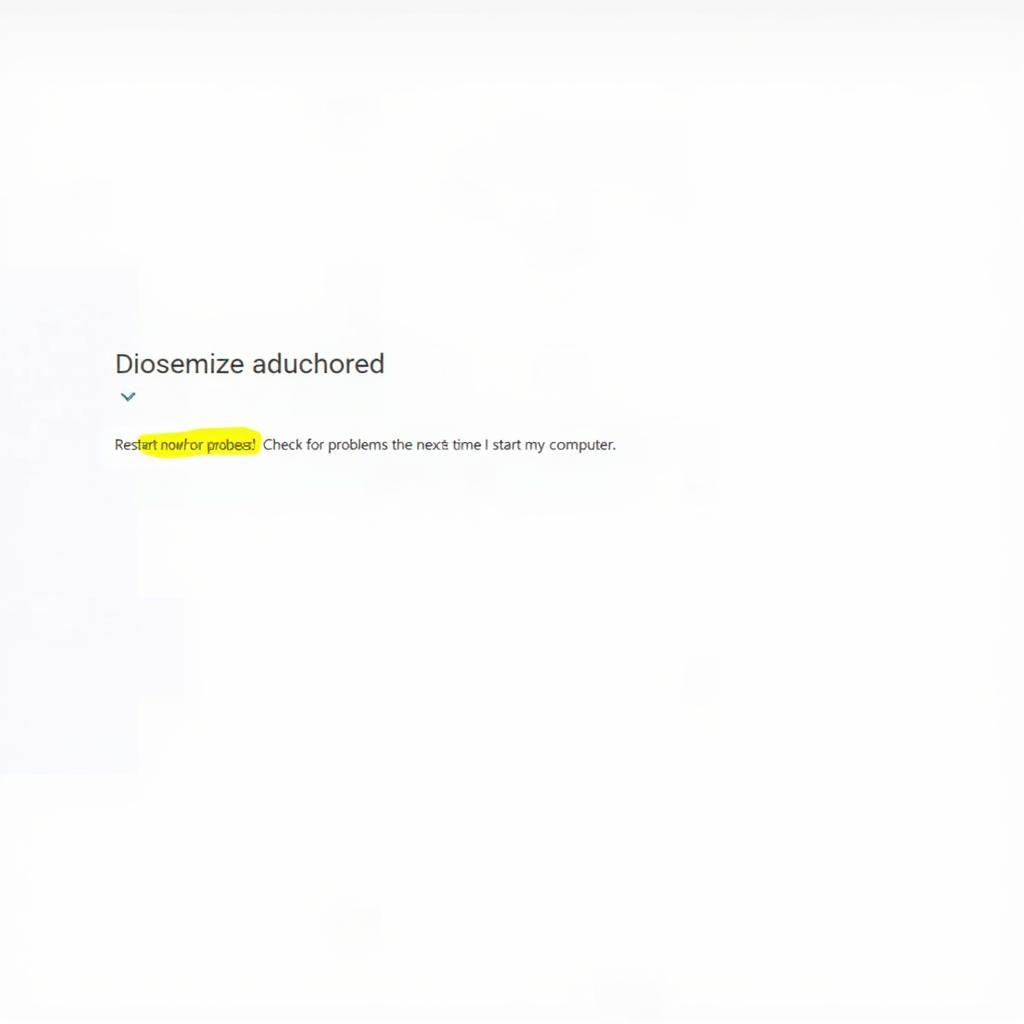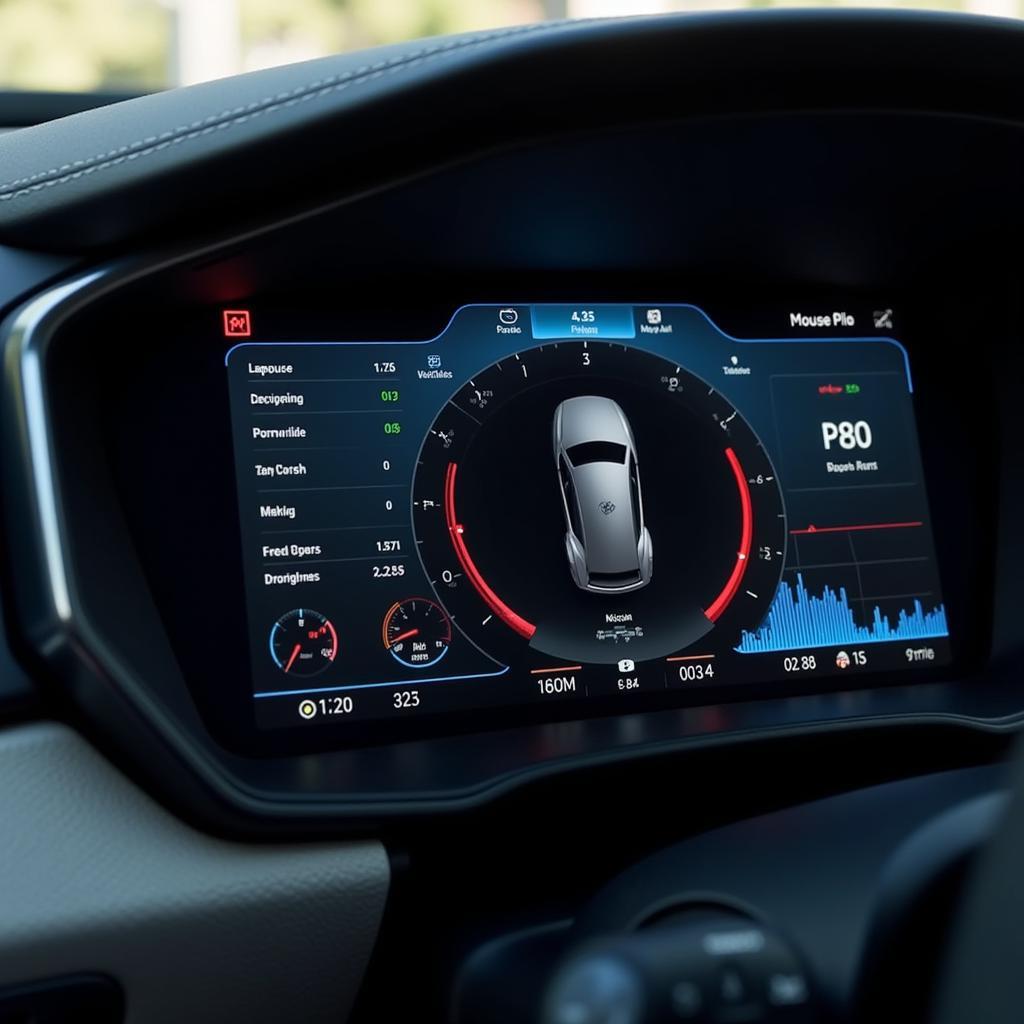Saliva As A Diagnostic Tool In Dentistry is revolutionizing how we detect, diagnose, and manage oral and systemic diseases. Saliva offers a readily available, non-invasive alternative to traditional blood tests, making it a patient-friendly option for various diagnostic applications.
Understanding the Power of Saliva
Saliva is more than just water and enzymes. This complex fluid contains a wealth of biomarkers like DNA, RNA, proteins, and microorganisms, providing valuable insights into our overall health. These biomarkers can be analyzed to detect specific diseases and conditions, including:
- Oral Cancer: Saliva tests can detect specific biomarkers associated with oral cancer in their early stages, improving treatment outcomes.
- Gum Disease: Elevated levels of certain enzymes and inflammatory markers in saliva can indicate gum disease, even before clinical signs appear.
- Viral Infections: Saliva tests can effectively diagnose viral infections like HIV, Hepatitis C, and even COVID-19.
- Hormonal Imbalances: Hormones like cortisol and testosterone are present in saliva, allowing for the monitoring of hormonal fluctuations and related conditions.
 Saliva Collection Methods
Saliva Collection Methods
Advantages of Saliva-Based Diagnostics
The use of saliva as a diagnostic tool offers several advantages over traditional methods:
- Non-invasive and Painless: Collecting saliva is quick, painless, and doesn’t require needles or specialized personnel, making it ideal for children and anxious patients.
- Cost-effective: Saliva tests are generally less expensive than blood tests, reducing the financial burden on patients.
- Convenient and Accessible: Saliva samples can be collected at home or in a dental office, eliminating the need for additional appointments or visits to laboratories.
- Real-Time Monitoring: Saliva allows for real-time monitoring of disease activity and treatment effectiveness, enabling personalized dental care.
How Saliva Tests Work
The process of using saliva for diagnostics is relatively simple:
- Sample Collection: Patients provide a saliva sample using a specialized collection device.
- Sample Analysis: The collected saliva is analyzed using highly sensitive techniques like polymerase chain reaction (PCR) or enzyme-linked immunosorbent assay (ELISA).
- Results Interpretation: The results are interpreted by a qualified dental professional to determine the presence or absence of specific biomarkers.
 Dental Professional Analyzing Saliva Test
Dental Professional Analyzing Saliva Test
The Future of Saliva in Dentistry
Saliva diagnostics is a rapidly evolving field with immense potential to transform dental care. Ongoing research and technological advancements are leading to the development of new saliva-based tests for a wider range of diseases and conditions.
“Saliva is a treasure trove of information,” says Dr. Emily Carter, a leading researcher in salivary diagnostics. “With the development of increasingly sophisticated analytical techniques, we’re only just beginning to unlock its full potential to diagnose and manage diseases in a personalized and minimally invasive way.”
Conclusion
Saliva as a diagnostic tool in dentistry is revolutionizing how we approach oral health care. By providing a non-invasive, cost-effective, and convenient alternative to traditional methods, saliva-based diagnostics offer a promising future for early disease detection, personalized treatment planning, and improved patient outcomes.
If you’re interested in learning more about how saliva diagnostics can benefit you, contact ScanToolUS at +1 (641) 206-8880 or visit our office at 1615 S Laramie Ave, Cicero, IL 60804, USA.
FAQs about Saliva as a Diagnostic Tool:
- Are saliva tests accurate?
Saliva tests are highly accurate when performed correctly and analyzed by qualified professionals. - How long does it take to get saliva test results?
The turnaround time for saliva test results varies depending on the specific test. However, many tests provide results within a few days. - Do I need to fast before providing a saliva sample?
Your dentist will provide specific instructions on how to prepare for a saliva test, which may include fasting for a short period. - Can saliva tests replace blood tests?
While saliva tests offer many advantages, they may not completely replace blood tests in all situations. Your dentist will determine the most appropriate diagnostic method based on your individual needs. - Are saliva tests covered by insurance?
Insurance coverage for saliva tests varies depending on the specific test and your insurance plan. Contact your insurance provider for detailed information about coverage.


